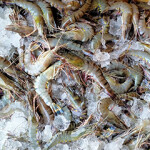US Department of Commerce imposes moratorium on Virginia menhaden fishery

The U.S. Department of Commerce has decided to impose a moratorium on Virginia’s menhaden fishery in light of the fishery's main participant deliberately exceeding a harvest cap in the Chesapeake Bay, and due to the state failing to codify Atlantic States Marine Fisheries Commission (ASMFC) harvest caps into law.
The decision comes after the ASMFC unanimously found the fishery to be out of compliance. The largest fisher of menhaden in the state, Omega Protein, signaled its intention to deliberately exceed a cap placed on menhaden in the Chesapeake Bay by the commission, and later followed through with that action. That decision ultimately led to the out-of-compliance vote, which in turn resulted in Virginia Governor Ralph Northam asking the secretary to impose a moratorium.
On 17 December, the Department of Commerce agreed with the ASMFC and the governor, and decided to impose a moratorium.
“A moratorium on fishing for Atlantic menhaden in Virginia state waters and possession of and landing of Atlantic menhaden if harvested in Virginia state waters will be imposed effective 17 June, 2020,” a letter from the U.S. Department of Commerce to the ASMFC states.
The moratorium is the latest in a years-long battle between Omega Protein, the state of Virginia, and the ASMFC. In May 2018, the ASMFC put the state of Virginia on notice due to the state failing to take action on the commission’s 51,000-metric-ton (MT) cap on menhaden in the Chesapeake Bay. That cap was a reduction of more than 36,000 MT from the previous cap.
Despite the ASFMC’s decision to reduce the cap, Virginia’s government failed to codify the catch limit, repeatedly defeating bills that would have change the cap.
Later on, in August 2018, the ASMFC tabled any action against Virginia and its menhaden fishery for the Chesapeake Bay by a 13 to 5 vote, largely because the fishery had not yet been overfished. However, due to difficult fishing conditions at sea, Omega Protein ended up fishing more than expected inside the bay, eventually exceeding the cap.
Throughout the back-and-forth, Omega Protein has been critical of the ASMFC’s actions on the menhaden fishery, calling the decision to reduce the quota “devoid of science.” The company continues to argue that the decrease was unnecessary.
“The company maintains that the 41 percent decrease in the Bay cap has never been based on science, and is unnecessary for the conservation of the menhaden fishery,” Omega Protein said in a press release responding to the Department of Commerce decision. “Since it was first implemented in 2006, no evidence has been produced showing that it is necessary, or that localized depletion of menhaden has ever occurred in the Chesapeake Bay.”
Omega Protein and the Atlantic menhaden fishery recently achieved Marine Stewardship Council certification in September, and the company points out that the ASMFC has, itself, acknowledged that the cap had no scientific basis.
“The ASMFC has previously acknowledged that there is no evidence supporting the need for a Bay cap. When Virginia initially appealed the latest reduction of the cap, the commission's leadership stated in its response that its menhaden Fishery Management Plan contained ‘no evidence to suggest the Bay Cap is necessary to protect the Bay as a nursery for other species,’” the company’s release states. “When it was first implemented in 2008, the then-director of the ASMFC testified before a Congressional committee that there ‘was not a science basis for the cap.’”
However, NOAA Fisheries and the Department of Commerce disagree with Omega Protein’s stance.
“NOAA Fisheries also finds that this management measure is necessary for the conservation of the menhaden resource,” the department’s letter states. “The best available information shows that menhaden in the Chesapeake Bay are an important component of the overall health of the stock, and further that their role as forage for predator species in the Chesapeake Bay is critical to the marine environment.”
Virginia has, according to the department, “not protested this finding of non-compliance.”
“In our communication with the Commonwealth, they have indicated that they intend to work with the legislature to implement the required management measure as soon as practicable,” the department’s letter said. “Virginia has been very cooperative and forthcoming with their intent during the determination period.”
The reason the moratorium will not start until June 2020, the letter adds, is to give the state time to bring its regulations back in compliance with the ASMFC.
“First, a June closure date will give Virginia the time necessary for its legislature to bring these regulations back into compliance,” the letter states. Second, although the involved measure is necessary for conservation, the immediacy of that need is less critical given the 2020 fishing season will not begin until spring 2020 and the 51,000 MT Bay cap has never been reached, or even come close to being reached by mid-June.”
Omega Protein said it plans to work with both the commission and Virginia to avoid the June 2020 moratorium.
“In response to this decision, Omega Protein will work with both the ASMFC and the Commonwealth of Virginia to lift the moratorium and bring the fishery back into compliance,” Omega Protein said. “The company looks forward to working with the commission in the coming months as we move toward ecosystem-based measures, and will continue to support science-based fishery management and a healthy menhaden fishery.”
Photo courtesy of Omega Protein






Share